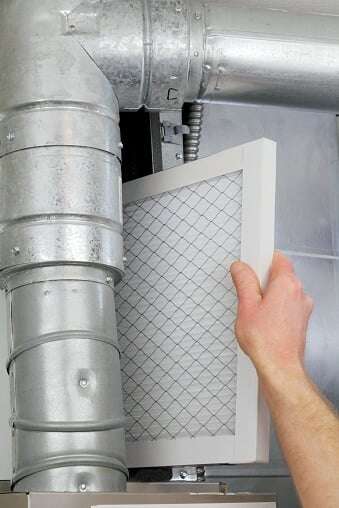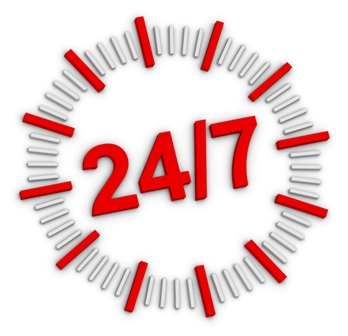 If you're a stickler about getting your car's oil changed every 3,000 to 5,000 miles, you've probably heard one of two verdicts.
If you're a stickler about getting your car's oil changed every 3,000 to 5,000 miles, you've probably heard one of two verdicts.
Verdict one: You got there just in the nick of time because the oil level is low or the oil is filthy. And verdict two: The oil looks good and so it could be changed or it could stay put until next time.
If you put roughly the same number of miles on your car between oil checks, how are both verdicts plausible? Because while the mileage you place on your car is a factor, so too are the conditions under which your car operates. In the end, it behooves you to stick to a regular oil check schedule to forestall verdict one and ensure that your car continues to run smoothly.
You should treat your furnace air filter in exactly the same way – as a stickler for quality control.
The 30-day difference for furnace filters
Many labels on furnace filter packages recommend checking your furnace filter every three months. But Experts In Your Home agrees with the U.S. Department of Energy: check it every month, even if you put the same number of "miles" on your furnace every month but especially if someone in your home suffers from breathing difficulties, you have furry pets, you regularly spray chemicals into the air or work with paint, someone in your home smokes or a remodeling project has generated a lot of dust.
Sometimes it's not easy to tell if it's time to replace a furnace filter. So hold it up to bright light. If you can't see the light shining through it, it's time for a new filter.
To help you remember this maintenance task, place a reminder on your calendar or cell phone. Or link it with another household task, such as paying your monthly gas bill.
Why a clean filter matters
Whatever your reminder method of choice, the U.S. Department of Energy says you will reap three tangible benefits from regular furnace filter changes:
- Better air flow. The filter traps dust, dirt and other airborne particles so that they don't settle on the furnace's components, just as an air filter protects your car engine. A clean furnace filter is like an insurance policy, ensuring that air flows freely and your furnace doesn't run any longer than it has to to reach the temperature you've set on your thermostat.
- Better performance. A clean filter improves your furnace's day-to-day efficiency and helps ensure that it reaches its projected 15- to 20-year lifespan. Just as you risk engine failure with little or no oil to lubricate your engine, you could risk a furnace breakdown if your furnace becomes choked with dust and dirt. (Experts In Your Home continues to make many service calls to frantic customers whose furnaces shut down and who fear they might have to buy a new one. It's one happy day for an Experts In Your Home technician when he can report that all they need is a clean, new filter to get their furnace running again.)
- Better indoor air quality. In addition to dust and dirt, a furnace filter traps irritants and allergens such as dust mites, pet dander and pollen so that they don't enter your ducts, flow into your home and infiltrate the air your breathe.
Why indoor air matters
Experts In Your Home technicians could share this finding 1,000 times and still be surprised themselves: The U.S. Environmental Protection Agency says that “indoor air levels of many pollutants may be two to five times and occasionally more than 100 times higher than outdoor levels.” A clean filter, the EPA says, is one of the simplest steps you can take to protect the integrity of your indoor air so that you:
- Reduce the intensity and duration of colds and viruses
- Mitigate allergy and asthma symptoms
- Lessen the risk of respiratory disease
- Improve the quality of your sleep, which in turn affects your overall health and well-being
Naturally, everyone benefits from clean, filtered air. But children are especially susceptible to poor indoor air because they breathe a greater volume of air in proportion to their body weight. And people with allergies, asthma and upper respiratory problems, who already are at a disadvantage, can suffer greatly when they inhale indoor pollutants.
Remember too not to overlook a fundamental: an annual furnace checkup with Experts In Your Home. Like a tune-up on your car, a furnace tune-up will help ensure that most verdicts regarding your furnace run in your favor. Contact us today if you want to schedule your checkup.
For more help on your home heating system, download the free eBook below:







